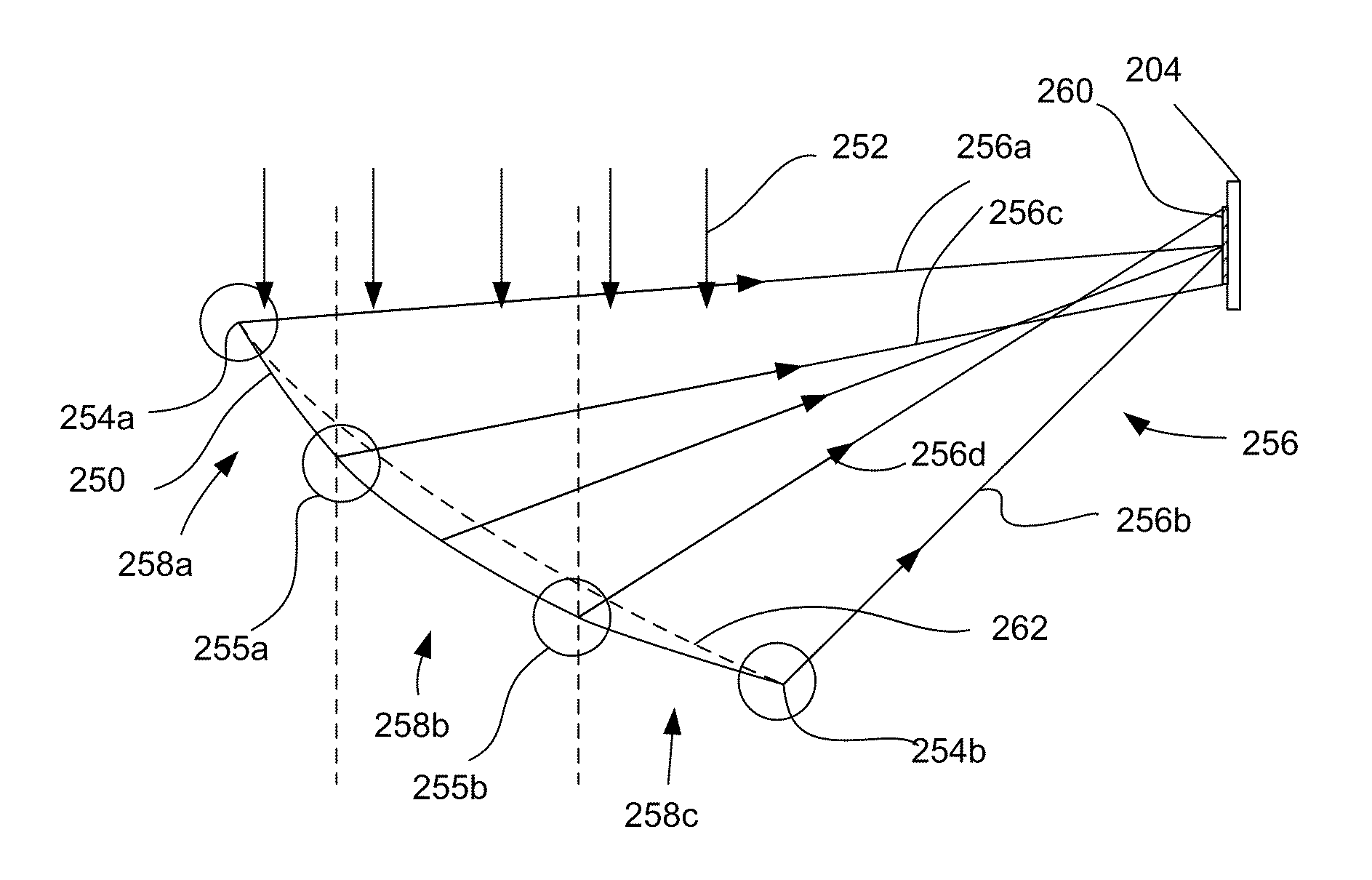Reflective surface for solar energy collector
a solar energy collector and reflective surface technology, applied in the direction of optical radiation measurement, instruments for comonautical navigation, instruments, etc., can solve the problems of reducing the optical-to-electrical efficiency of non-concentrating photovoltaic systems, limiting the utilization of less than all of the total available light, and increasing the cost and system complexity. , to achieve the effect of facilitating the described non-imaging reflection of incident radiation
- Summary
- Abstract
- Description
- Claims
- Application Information
AI Technical Summary
Benefits of technology
Problems solved by technology
Method used
Image
Examples
Embodiment Construction
[0028]The present invention relates generally to concentrating photovoltaic (CPV) systems. Various aspects of the present invention relate to a reflective surface that concentrates sunlight onto a solar receiver in a largely non-imaging manner. The reflective surface is arranged to help minimize energy losses attributed to the misalignment of the edges of the reflective surface. Various embodiments of the reflective surface are angularly and spatially continuous and / or distribute light more uniformly across the surface of the solar receiver. Such features can improve the efficiency of solar energy collection and facilitate the manufacture of the reflective surface.
[0029]The present invention represents an improvement upon various reflector designs described in U.S. patent application Ser. No. 12 / 100,726, entitled “Dual Trough Concentrating Solar Photovoltaic Module,” filed Apr. 10, 2008, which is incorporated herein in its entirety for all purposes and is referred to hereinafter as ...
PUM
 Login to View More
Login to View More Abstract
Description
Claims
Application Information
 Login to View More
Login to View More - R&D
- Intellectual Property
- Life Sciences
- Materials
- Tech Scout
- Unparalleled Data Quality
- Higher Quality Content
- 60% Fewer Hallucinations
Browse by: Latest US Patents, China's latest patents, Technical Efficacy Thesaurus, Application Domain, Technology Topic, Popular Technical Reports.
© 2025 PatSnap. All rights reserved.Legal|Privacy policy|Modern Slavery Act Transparency Statement|Sitemap|About US| Contact US: help@patsnap.com



